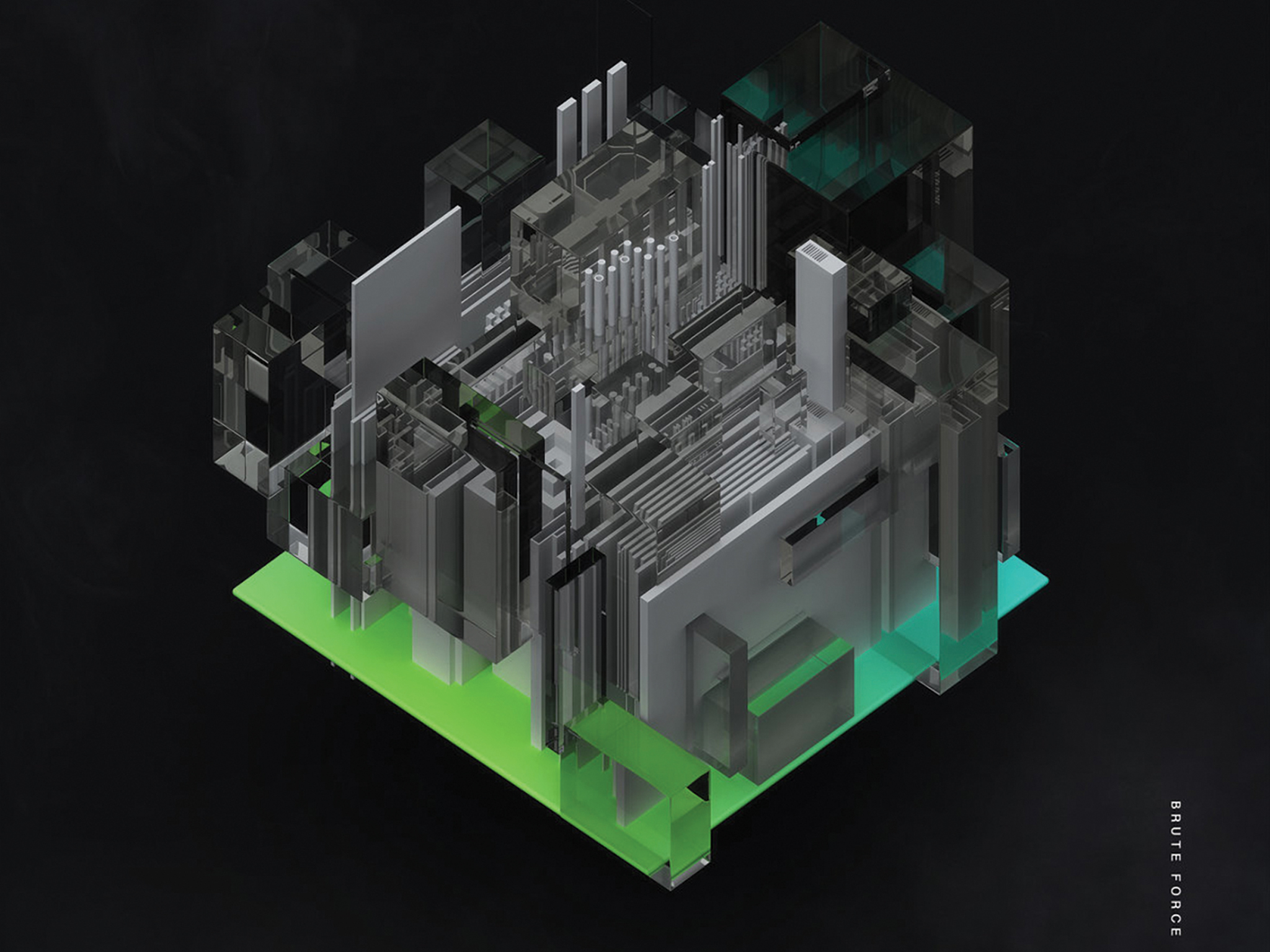Remi Gallego from Algorithm on combining Meshuggah with Aphex Twin
Solo French maestro making a whole lotta noise.

Select the newsletters you’d like to receive. Then, add your email to sign up.
You are now subscribed
Your newsletter sign-up was successful
Want to add more newsletters?

Every Friday
Louder
Louder’s weekly newsletter is jam-packed with the team’s personal highlights from the last seven days, including features, breaking news, reviews and tons of juicy exclusives from the world of alternative music.

Every Friday
Classic Rock
The Classic Rock newsletter is an essential read for the discerning rock fan. Every week we bring you the news, reviews and the very best features and interviews from our extensive archive. Written by rock fans for rock fans.

Every Friday
Metal Hammer
For the last four decades Metal Hammer has been the world’s greatest metal magazine. Created by metalheads for metalheads, ‘Hammer takes you behind the scenes, closer to the action, and nearer to the bands that you love the most.

Every Friday
Prog
The Prog newsletter brings you the very best of Prog Magazine and our website, every Friday. We'll deliver you the very latest news from the Prog universe, informative features and archive material from Prog’s impressive vault.
All too often, bands are described as ‘unique’, when in reality it’s only in the strictest, literal sense of the word that the distinction holds. The same, of course, is true of ‘original’, that most treasured of epithets. Bucking all expectations, electronic progressive metallers The Algorithm are undeniably both unique and original, in a way that’s both viscerally thrilling and a relief to jaded critics and fans alike. Started when Rémi Gallego – the brains behind the project and the only permanent member – found his previous band dissolving, The Algorithm quickly became a creative outlet for very out-there ideas.
“I used to play in this metalcore band back in France, and once they split up I still wanted to write music and play the guitar,” Gallego explains. “So I started recording myself using really cheap equipment in my bedroom, and because I was studying computer science at the time, I was really interested in using software to write music. So I downloaded all these synthesiser plug‑ins online and messed around with these. The idea then grew over time – I didn’t think overnight, ‘Oh, I want to do this,’ but at the end of the day it was a combination of wanting to write metal music with a passion for software and synthesisers.
“I think playing live has had a big impact on the music because it made me feel that I wanted to play more instruments,” he continues. “At first, I liked to play the music only using a MIDI controller, and being more like a DJ.”
It’s like a crossover between progressive metal and experimental electronic music.
Understandably, this experience of playing using non-live instruments, albeit with a live drummer in tow, gradually began to wear at him, and it has informed his approach to studio material now.
“After playing so many shows like that, I felt the need to actually play notes and play music live. That’s a huge factor in me deciding to bring more guitar and heavy elements into the music… it was important for me to bring this human feeling to the music, which was maybe a bit absent on [2014 album] Octopus4, which was way more in the electronic direction.”
This also forms the main difference between the conceptual Octopus4 and newly released third LP Brute Force. “There are a lot more guitars and heavy elements that are back in the game. I think I felt after Octopus4 that I wanted to bring back the sound I had in the beginning of the project [on 2012 debut LP Polymorphic Code], and I wanted to bring more organic elements, with more guitars and rhythms and keyboard solos, that sort of thing.”
Sign up below to get the latest from Prog, plus exclusive special offers, direct to your inbox!
Besides this, his influences are diverse. “I think I would explain it as a mix of Meshuggah-style metal with Aphex Twin,” he offers. “So it’s like a crossover between progressive metal and experimental electronic music. I’m trying to combine the complexity of both styles of music into one.”
Without the enthusiasm and direct support of other musicians in a band situation, some might see Gallego’s situation as lonely, and wonder how he can continue to keep his energy and enthusiasm levels so high. As it turns out, the answer to why he loves music is pretty simple.
“The way I see it, it’s pure communication. When I write music, I know that what I’m doing is a bit niche, that not everybody will understand it, but I think that’s what I like because it allows me to tell very specific things, in a very specific way – which allows me to speak to like-minded people.”

PROG FILE
| line-up |
| Rémi Gallego (keyboards, programming, guitars), Jean Ferry (live drums) |
| sounds like |
| Listening to Dillinger Escape Plan while your laptop crashes |
| current release |
| Brute Force is out now on FiXT Music |
| website |
| www.the-algorithm.net |
